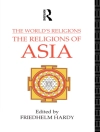In 1964, sociologist William Mc Cord, long interested in movements for social change in the United States, began a study of Mississippi’s Freedom Summer. Stanford University, where Mc Cord taught, had been the site of recruiting efforts for student volunteers for the Freedom Summer project by such activists as Robert Moses and Allard Lowenstein. Described by his wife as “an old-fashioned liberal, ” Mc Cord believed that he should both examine and participate in events in Mississippi. He accompanied student workers and black Mississippians to courthouses and Freedom Houses, and he attracted police attention as he studied the mechanisms of white supremacy and the black nonviolent campaign against racial segregation.
Published in 1965 by W. W. Norton, his book,
Mississippi: The Long, Hot Summer, is one of the first examinations of the events of 1964 by a scholar. It provides a compelling, detailed account of Mississippi people and places, including the thousands of student workers who found in the state both opportunities and severe challenges. Mc Cord’s work sought to communicate to a broad audience the depth of repression in Mississippi. Here was evidence of the need for federal action to address what he recognized as both national and southern failures to secure civil rights for black Americans. His field work and activism in Mississippi offered a perspective that few other academics or other white Americans had shared.
Historian Françoise N. Hamlin provides a substantial introduction that sets Mc Cord’s work within the context of other narratives of Freedom Summer and explores Mc Cord’s broader career that combined distinguished scholarship with social activism.
Про автора
Françoise N. Hamlin is the Royce Family Associate Professor of Teaching Excellence in Africana Studies and History at Brown University. She is author of Crossroads at Clarksdale: The Black Freedom Struggle in the Mississippi Delta after World War II and coeditor of These Truly Are the Brave: An Anthology of African American Writings on War and Citizenship.












